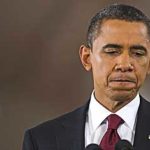
President Obama ruminates on his changing political fortunes.
Yesterday’s results in the U.S. midterm elections have several implications relevant to India and bilateral relations.
First, although President Obama’s name appeared on no ballot, the elections were in essence a referendum on his stewardship of national policy. The stiff rebuke delivered to him and the Democratic Party means that he will depart shoirtly for a state visit to India a much diminished political figure. As the Financial Times colorfully puts it, the president now appears “like a shooting star who briefly lit the sky before crashing.”
Given the circumstances, Mr. Obama may well be tempted to shore up his position by making good on his promise to begin withdrawing U.S. forces in Afghanistan next summer – an act that would cheer many Democrats but cause great consternation in New Delhi. His forthcoming conversations with Prime Minister Manmohan Singh about AfPak conundrums will shed light on which way he is leaning. Of course, the Republican ascendancy in Congress will serve as a brake on drastic changes in AfPak policy. It’s worth noting here the likely return of Ed Royce as chairman of the House Subcommittee on Terrorism, Nonproliferation and Trade. A senior Republican from Southern California and present co-chair of the Congressional Caucus on India, he should be able to focus attention on the AfPak issue as well as push for the further development of bilateral relations.
A second notable outcome is that the Democratic Party’s exploitation of the corporate outsourcing issue alienated Indian-Americans, a key source of the party’s funding. The Wall Street Journal reports that the US India Political Action Committee (USINPAC), a powerful Indian-American lobbying group, contributed campaign money for the first time to Republican candidates this election cycle, in large part due to the outsourcing issue. One of the beneficiaries is John Kasich, who won his bid to serve as governor of Ohio. Kasich defeated Ted Strickland, the Democratic incumbent who vocally banned the outsourcing of state government business to India. Also receiving USINPAC money was Republican John Boozman, who won election as the new U.S. Senator from Arkansas. He defeated Blanche Lincoln, the Democratic incumbent who also sought to turn the outsourcing controversy to her advantage.
This trend, however, did not extend to Republican Carly Fiorina, the former CEO of Hewlett Packard who was running for a U.S. Senate seat in California, home to many Indian-Americans. Barbara Boxer, the Democratic incumbent, also attacked Fiorina on outsourcing but handily won re-election.
Third, the election provided further evidence of the fast rise of Indian immigrants in American society. Nikki Haley (born Nimrata Nikki Randhawa), the daughter of Sikh immigrants, won her campaign to become the next governor of South Carolina. She now joins Piyush Amrit “Bobby” Jindal, current governor of Louisiana and son of Punjabi immigrants, as rising stars in the national Republican Party. Although ballots are still being counted, Democrat Kamala Harris, whose mother is a Tamil immigrant, currently has a slight lead in the race for California attorney general, the state’s top law enforcement official who is typically regarded as the state’s most powerful official after the governor. If she prevails, she too would be well positioned for a higher-profile political office in the future. As an earlier post argues, the increasing stature of Indian-Americans has helped bring about the recent transformation in bilateral relations by changing U.S. public attitudes toward India.
UPDATE: Three weeks after the November 2nd elections, Kamala Harris was declared the winner of the California attorney general’s race. She will be sworn into office on January 3, 2011.